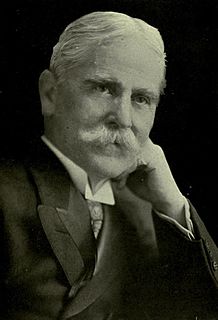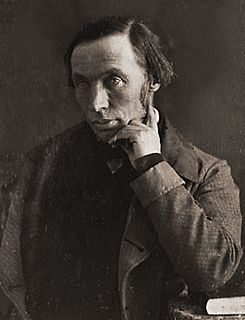A Quote by John of the Cross
I have said this to explain the stanza that follows, in which the soul replies to those who call in question its holy tranquillity, who will have it wholly occupied with outward duties, that its light may shine before the world: these persons have no conception of the fibres and the unseen root whence the sap is drawn, and which nourish the fruit.
Related Quotes
In all warm-blooded creatures, which are the highest evolved and have feelings, passions and emotions, which reach outward into the world with desire, which may be said to really live in the fuller meaning of the term and not merely vegetate - in all such creatures, the currents of the desire body flow outward from the liver.
A pure soul is like a fine pearl. As long as it is hidden in the shell, at the bottom of the sea, no one thinks of admiring it. But if you bring it into the sunshine, this pearl will shine and attract all eyes. Thus the pure soul, which is hidden from the eyes of the world, will one day shine before the Angels in the sunshine of eternity.
A really sublime moment is that when the last ray of light breaks in upon the soul, and marshals into a single group all the scattered disconnected truths there. There is such a vast difference between the moment which follows, and the moment which precedes this one, between what we were before, and what we are after, that the word grace has been invented to convey the idea of this magic stroke, of this light from on high.
A woman cannot live in the light of intellect. Society forbids it. Those conventional frivolities, which are called her 'duties', forbid it. Her 'domestic duties', high-sounding words, which, for the most part, are but bad habits (which she has not the courage to enfranchise herself from, the strength to break through), forbid it.
But yet it is evident that religion consists so much in affection, as that without holy affection there is no true religion; and no light in the understanding is good which does not produce holy affection in the heart: no habit or principle in the heart is good which has no such exercise; and no external fruit is good which does not proceed from such exercises.
Who ever comes to shroud me, do not harm Nor question much That subtle wreath of hair, which crowns my arm; The mystery, the sign you must not touch, For 'tis my outward soul, Viceroy to that, which then to heaven being gone, Will leave this to control, And keep these limbs, her provinces, from dissolution.
The city is the image of the soul, the surrounding walls being the frontier between the outward and inward life. The gates are the faculties or senses connecting the life of the soul with the outward world. Living springs of water rise within it. And in the centre, where beats the heart, stands the holy sanctuary.
Faith is not a light which scatters all our darkness, but a lamp which guides our steps in the night and suffices for the journey. To those who suffer, God does not provide arguments which explain everything; rather, his response is that of an accompanying presence, a history of goodness which touches every story of suffering and opens up a ray of light.










































